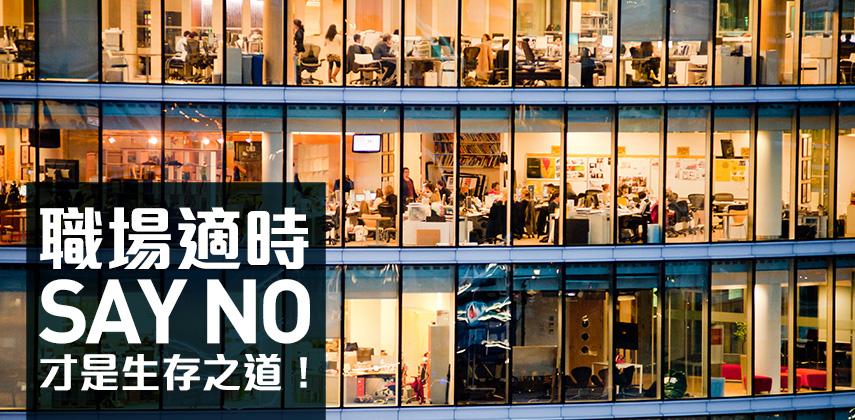In today’s workplace, professionals have to manage their personal and family’s needs along with their perception and performance in the office. Work-life balance can be tricky; how is anyone to know if they are doing enough, meeting “face time” expectations, and still doing a good job as a spouse, friend, and parent. The positive side of the story is that workplaces are evolving over time, and flexible working arrangements are becoming more and more acceptable. Over 74 percent of workers surveyed say they want flexible options at work and it’s becoming more commonplace to make it happen. Read on to learn when and how to say no in the workplace.
First, it’s important to recognise that it can be very difficult to say “no” in the workplace. As a salaried professional, and a high performer, the pressure is always on to give more, do more to go above and beyond. The majority of employees regularly respond to e-mail after work hours. After all, the belief goes, the people who deliver at every opportunity are the ones more often rewarded with promotions and other incentives. To ensure your flexible working arrangement is successful, it’s incredibly important to start off by setting boundaries in both the workplace and at home. There are many individuals serving as stakeholders in your life - ranging from your manager, to your peers, to the members of your family. You will need to start saying no to some things in order to make the most of what you can realistically accomplish. At work, know what you want and be specific in the request: perhaps you want to work from home on Wednesdays and Thursdays, or you will leave at 5 in the afternoon, but work extra hours in the evening. At home, it will help to align your family’s expectations accordingly, so that you can fulfill those professional commitments.
Next, turn a proactive eye to your professional work habits and get strategic. It’s a similar mindset to writing a great resume: rather than looking at the daily tasks and responsibilities on your plate, what legacy do you want to leave? What will be your greatest achievements? That mindset will help you determine where you have significant impact, and where you can maximise your contributions to the business. When you have a flexible arrangement, it’s incredibly important to prioritise your work. If you have the opportunity to work from home, take advantage of your arrangement to get the most done. Over 54 percent of workers say their preferred location to undertake important projects is at home - not in the office! It can work to your advantage to plan well, think about the details, and to focus your efforts on catching the proverbial biggest fishes in the sea.
The next key to saying “no” in the workplace can be as simple as taking a page from Sheryl Sandberg, chief operating officer of Facebook: accept that “done is better than perfect.” There will always be work to do, but achieving perfection is extremely inefficient. In fact, experts say perfection can be damaging, causing burnouts. And that’s naturally counterproductive when it comes to work-life balance. The point of achieving the ideal arrangement is so that you can limit how much time you spend working, and choosing the right roles, right tasks, and right quality of work are key. Rather than focusing on achieving perfection, focus on achieving excellence and quality.
Prioritising work-life balance has benefits for both employers and employees; individuals can be more engaged and productive, while companies can realise cost saving initiatives and better recruiting and retention of the existing workforce. The real trick is setting up an arrangement that satisfies all parties involved, and enables you to effectively and efficiently allocating your time and efforts. Setting clear expectations at work and at home will ensure that your arrangement will work out as planned. It’s naturally important to ensure your manager and workplace are on board with your plan; and even more important to determine what projects you take on. It’s essential to have the greatest impact with your limited time. Finally, remember to work towards excellence, rather than focusing on perfection. These factors will help in finding a flexible work-life arrangement that enables you to choose what you do, and the professional and personal impact you have.


